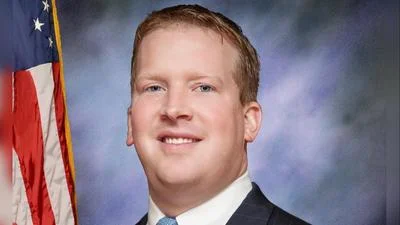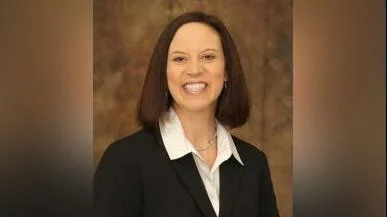Rep. Blaine Wilhour | Facebook / Blaine Wilhour
Rep. Blaine Wilhour | Facebook / Blaine Wilhour
Illinois Representative Blaine Wilhour shared his concern for consumers as the state moves toward implementing new energy programs.
On Wednesday, ComEd filed a request with the Illinois Commerce Commission (ICC) to move forward with its energy efficiency program expansion in the wake of the Climate and Equitable Jobs Act (CEJA). If approved, customers are expected to see a 30-cents increase in their monthly bills, according to WSILTV.
"We said at the time that this proposed CEJA legislation was going to do nothing but raise rates on consumers and lower reliability and do big, big unnecessary corrupt bailouts for corrupt, phony corporations, and the working-class people in this state were going to have to pay for it," Wilhour said. "And that's what we're seeing right now."
ComEd's expansion seeks a cost recovery of $50 million that would support programs in order to help customers reduce their energy usage and bills and contribute to a cleaner environment, supporting the state's Climate and Equitable Jobs Act (CEJA), in addition to ComEd’s ICC-approved four-year energy efficiency plan, which significantly increases funding for programs benefitting low-income customers.
“CEJA is widely recognized throughout Illinois and beyond as ambitious clean energy legislation, and the ComEd energy efficiency programs that it supports will contribute significantly to reducing carbon emissions,” said Stacey Paradis, executive director of the Midwest Energy Efficiency Association, according to WSILTV. “In Illinois, energy efficiency is a key component to achieving climate targets while reducing household costs, decreasing emissions, and improving indoor air quality and resiliency.”
Many Illinois residents are still in opposition to CEJA, especially manufacturers, businesses, and other agencies who are worried that the compromises needed to support the bill from the fossil fuel industry will be too much for the economy to handle, according to WIFR.
"When you raise the energy cost on manufacturers and people that are employing working-class people, you're going to have a heck of a lot less opportunity in Illinois," Wilhour said.






 Alerts Sign-up
Alerts Sign-up